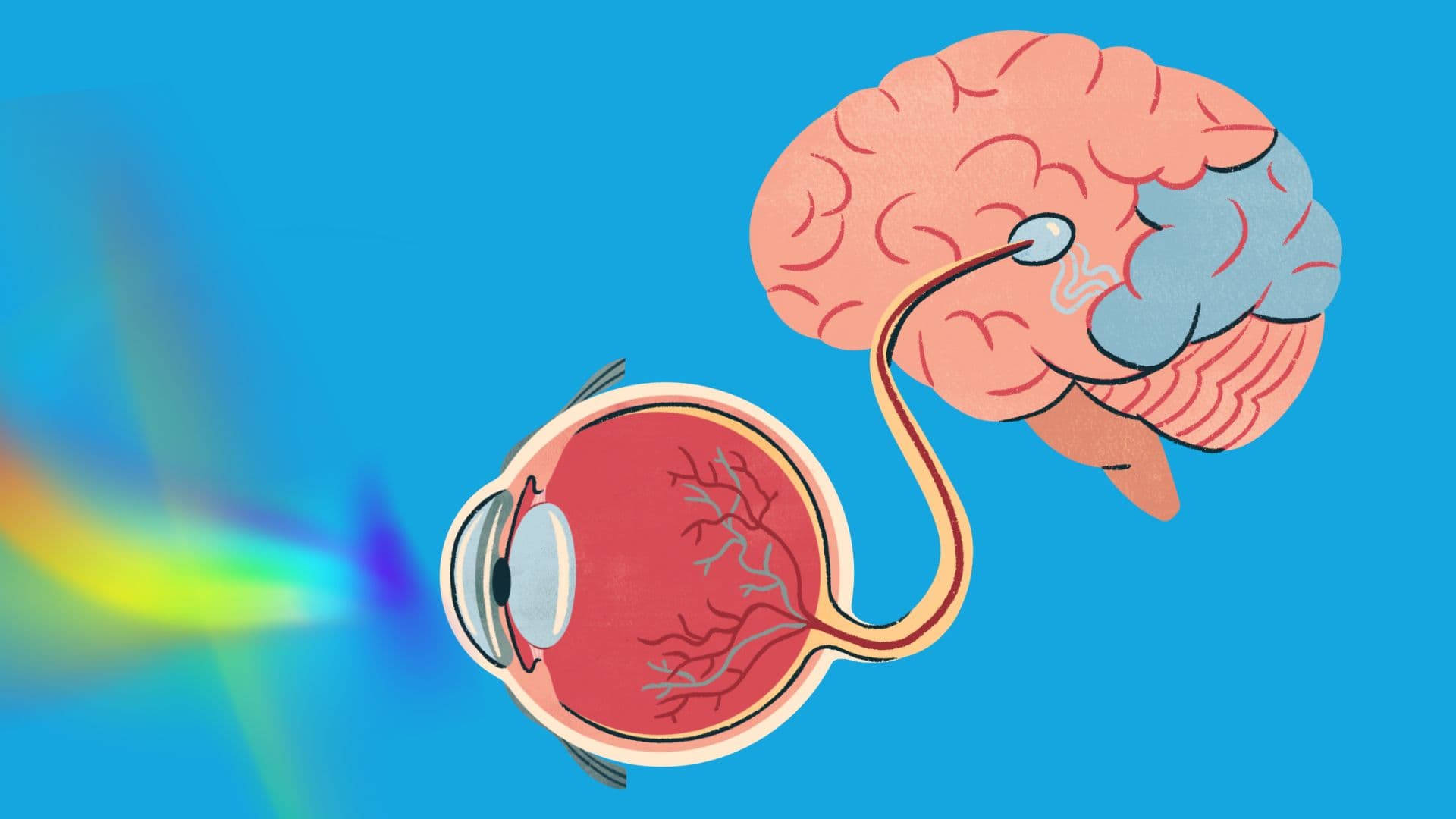
Convergence insufficiency (CI) is a common vision disorder where the eyes struggle to work together when looking at nearby objects. When you focus on something, your both of your eyes turn in. People with convergence insufficiency will look at something up close, while one eye turns out.
This condition affects the ability to focus on tasks such as reading, using a computer, or any activity that involves close-up work. Around 4.2 to 17.6% of the general population are affected. While each eye may see clearly on its own, together they do not align properly, leading to various symptoms that can affect daily activities.

The root cause of convergence insufficiency is not clear, however, there are several factors that contribute to the condition. According to research, there is a connection between convergence insufficiency and deficits in the brain’s slow adaptive vergence system.
Even individuals with a normal birth, developmental, and medical history can develop convergence insufficiency. Most people with this condition are otherwise healthy, have normal eyes, and possess 20/20 vision. This is a big reason why convergence insufficiency often goes undetected during routine vision screenings and eye exams.
Convergence insufficiency (CI) can significantly impact daily life, often presenting with symptoms that can be easily overlooked or misattributed to other issues. To focus on close objects, your eyes need to move inward towards your nose, a process known as convergence. When you have difficulty converging your eyes or maintaining this convergence, it can lead to the following symptoms:
Difficulty concentrating and maintaining focus on near tasks is also a symptom, which can lead to frustration and a tendency to avoid activities like reading. Your memory may be compromised due to this. Additionally, some people report a sense of tiredness or fatigue during or after close-up work. These symptoms can vary in intensity and may worsen with prolonged visual tasks, making it crucial to recognize and address CI for improved quality of life and productivity.
Diagnosing convergence insufficiency (CI) involves a comprehensive eye examination by an optometrist or ophthalmologist. A standard binocular vision examination can diagnose convergence insufficiency. Your provider will also ask specialized questions and test for double vision, while also using prism lenses to measure misalignment.
It’s important to understand that most routine eye exams do not specifically test for convergence insufficiency (CI). Therefore, patients or parents should clearly explain the symptoms they are experiencing to ensure proper evaluation.

Treating convergence insufficiency (CI) typically involves a combination of therapies and strategies tailored to the individual’s needs. One of the most effective treatments is vision therapy, which consists of structured exercises designed to improve eye coordination and strengthen the eye muscles. These exercises can be performed both in-office with a vision therapist and at home to reinforce progress. Vision therapy often includes activities like focusing on objects at varying distances, using special lenses, and computer-based training programs.
If the patient doesn’t put in the effort, then there won’t be much progress. This process is very patient intensive. Convergence insufficiency is treatable, but only if the patient is willing to do therapy and stay consistent with it. It’s up to the patient to enable it’s success.
Prism glasses are another common treatment option. These glasses use special lenses to alter the way light enters the eyes, helping to reduce the effort required for convergence and alleviate symptoms like double vision and eye strain. Reading glasses with specific prescriptions might also be recommended for those who experience significant difficulty during near tasks.